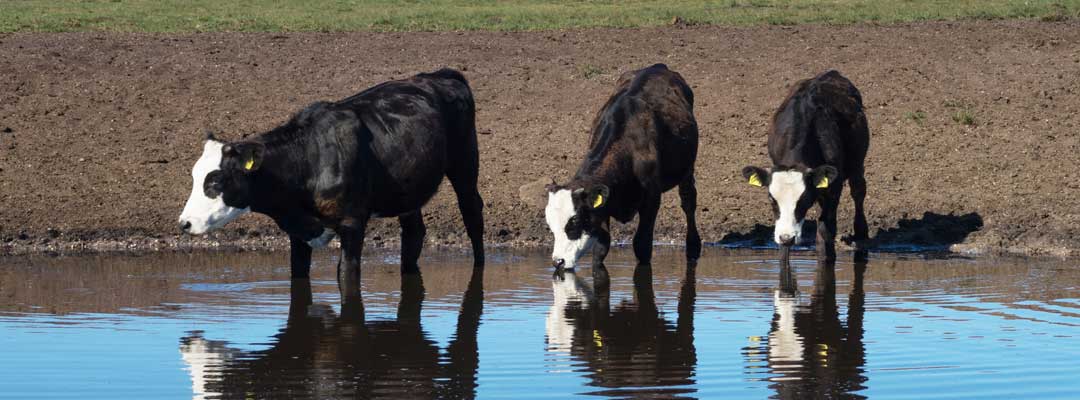Q&A: Avoid Heat Stress, Cattle Health & Safety Depend on It
Know the signs of heat stress in cattle

And just like that, summer is here with high temperatures that can present significant risk to livestock.
First, what is heat stress?
Heat stress is caused by rising temperatures -- and even humidity -- which results in an animal’s inability to dissipate body heat. All animals can experience heat stress.
What are signs of heat stress in cattle?
How can you prevent heat stress?
Help keep your herd safe and healthy as summer heats up. “There are some things producers can do to help mitigate heat stress risk,” says Tony Hawkins, DVM, Valley Vet Supply Technical Service Veterinarian.
To avoid heat stress, cattle producers can look to these eight tips from Dr. Hawkins.
- Provide cattle with ample shade, if possible. “Out in the pastures, ensure cattle have access to tree cover. If you don’t, or if cattle are in pens, you can build some shade structures.”
- Implement ventilation. “If your cattle are in a barn, make sure they have proper ventilation, whether that be air movement opportunities from outdoors or from a livestock fan, which will help immensely.”
- Put misters in place. “Sprinklers and misting systems will work well to help keep cattle cool. Important, however, is that you have proper ventilation in your barn or pens, as without, sprinklers and misters can actually increase the humidity level, in turn increasing risk for heat stress in cattle.”
- Offer ample fresh water. “Having access to fresh water is vital for cattle health, especially during the heat. University of Nebraska-Lincoln notes that daily water intake may vary from 3 to 30 gallons per day, depending on age, weight, production stage and weather conditions.”
- Minimize daytime movement. “The most important thing during this extreme heat and humidity is to avoid handling cattle other than in the morning. Cattle produce heat on their own throughout their digestive process. They need evening and nighttime to cool back down.”
- Avoid hauling during the heat of the day. “Trailers don’t allow for good airflow. It’s not quite as bad as a closed car, but it gets warm in them. Try to arrange travel times to haul during the morning hours.
- Prioritize fly control for cattle. “When cattle are bothered by flies, they tend to bunch up, which prohibits air movement and prevents them from being able to cool down. From an environmental fly control standpoint, frequently remove manure, damp and soiled hay, uneaten grain, and any other source of decaying organic matter in confinement areas. For pasture cattle, encourage water drainage and minimize decaying plant matter with cutting or burning. For a stress-free fly control method, try self-applicator rubs like dust bags and back rubbers, to provide cattle with regular insecticide application. Good fly control tremendously helps reduce heat and stress in cattle.
- Replenish lost nutrients. “Many producers will administer electrolytes for cattle to help them, should they be dehydrated or at risk for suffering from heat stress. Important minerals like magnesium, potassium and sodium can be depleted during sweat, evaporation, and even from the feces and urine of cattle. Supplementing cattle with electrolytes can benefit their health and performance, by replenishing these depleted nutrients.”
Help keep your herd safe and healthy as summer heats up with this advice from a Valley Vet Supply Technical Service Veterinarian. Find everything you need to support a healthy herd at ValleyVet.com.


